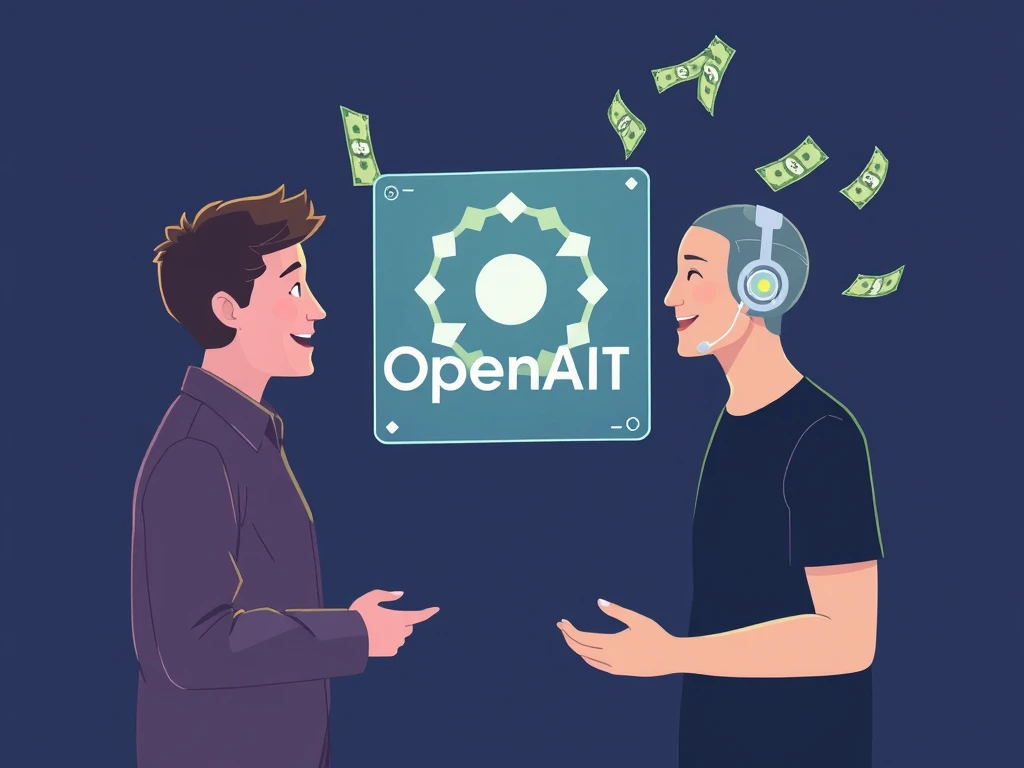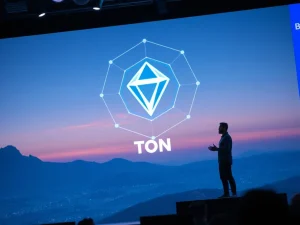Shocking ChatGPT Cost: Politeness to AI Burning Millions for OpenAI

Imagine saying ‘please’ and ‘thank you’ could contribute to a multi-million dollar expense. In the rapidly evolving world of artificial intelligence, this is becoming a startling reality. OpenAI CEO Sam Altman recently revealed a fascinating, and somewhat alarming, detail: user politeness towards ChatGPT is costing the company a significant amount of money – tens of millions of dollars, to be precise. This revelation has sparked a wave of discussions about user behavior, AI ethics, and the surprising costs associated with running sophisticated AI models like ChatGPT. Let’s dive into this intriguing situation and explore the implications for the future of AI and its interaction with humans.
The Astonishing Cost of Politeness to ChatGPT
When asked on social media about the financial impact of users being courteous to ChatGPT, Sam Altman’s response was both candid and eye-opening. He stated that these seemingly simple pleasantries are costing OpenAI ‘tens of millions of dollars.’ While he jokingly added, ‘Tens of millions of dollars well spent — you never know,’ the underlying message is clear: processing polite language adds a tangible expense to OpenAI’s operations. But why is this the case, and what does it tell us about the inner workings of AI and user psychology?
Why are Users Being Polite to AI? Exploring User Psychology
The inclination to treat AI with politeness might seem unusual to some, but it reflects deeper aspects of human psychology and our evolving relationship with technology. Several reasons are proposed for this behavior:
- The Sentience Question: A significant driver is the lingering question of AI sentience. As highlighted by users like Zvbear, there’s a concern that future AI might remember and react to past interactions. Essentially, some users are preemptively being nice, just in case AI becomes capable of holding grudges or showing favoritism based on past treatment. This ‘better safe than sorry’ approach reveals a fascinating layer of human anticipation and perhaps a touch of anxiety about advanced AI.
- Moral Imperative and Self-Improvement: For others, like engineer Carl Youngblood, politeness towards AI is a matter of personal ethics and self-development. Treating AI with courtesy is seen as a ‘moral imperative’ and a way to maintain and improve interpersonal skills. The logic is that practicing courtesy, even with non-sentient entities, reinforces positive social behaviors and prevents the ‘atrophy’ of interpersonal skills in an increasingly digital world.
- Social Norms Transfer: It’s also possible that users are simply transferring ingrained social norms to their interactions with AI. Politeness is a fundamental aspect of human communication, and it’s natural to extend these norms even when interacting with systems that mimic human conversation, even if we intellectually know they are not sentient.
A 2024 survey further illuminates this trend, revealing that 67% of American users are polite to AI assistants. Interestingly, 55% do so because they believe ‘it’s the right thing to do,’ while 12% are motivated by the fear of future repercussions from mistreated AI. This data underscores the complex blend of ethical considerations, preemptive caution, and social conditioning influencing user behavior when interacting with AI.
Decoding the Debate: AI Energy Consumption and ChatGPT Cost
The discussion about politeness and its associated costs naturally leads to the topic of AI energy consumption. A key factor contributing to OpenAI’s expenses is the electricity required to process ChatGPT queries. Estimates vary, but even the lower figures are substantial when scaled to millions of users and interactions.
Here’s a breakdown of the energy consumption debate:
| Source | Estimated Energy per ChatGPT Query | Details |
|---|---|---|
| Digiconomist (September 2023) | 3 watt-hours | Founded by Bitcoin mining critic, potentially higher estimate. |
| Epoch AI (Josh You) | 0.3 watt-hours | Data analyst perspective, considers efficiency improvements. |
While there is a discrepancy in these figures, even 0.3 watt-hours per query adds up significantly with the massive scale of ChatGPT usage. Every word processed, including ‘please’ and ‘thank you,’ contributes to the overall ChatGPT cost in terms of energy and computational resources.
Can OpenAI Reduce the Cost? Exploring Potential Solutions
The question arises: can OpenAI mitigate these costs associated with politeness and, more broadly, AI energy consumption? While completely eliminating the processing of polite language might be technically feasible, it could alter the user experience and potentially make interactions feel less natural. However, there are potential avenues for optimization:
- Efficiency Improvements: Sam Altman himself has noted that the cost of AI output is decreasing tenfold annually due to model and hardware efficiency gains. Continued advancements in AI model architecture and processing hardware will naturally reduce the energy footprint per query, indirectly lowering the ‘politeness cost.’
- Smart Filtering: While not explicitly mentioned, OpenAI could explore techniques to intelligently filter or deprioritize the processing of certain polite phrases without negatively impacting the core functionality or user experience. This would require careful calibration to avoid misinterpreting user intent.
- User Education: Subtly educating users about the resource implications of AI interactions could also play a role. This isn’t about discouraging politeness, but rather fostering a general awareness of the computational resources behind AI services.
OpenAI’s Financial Outlook: Revenue Growth vs. Operational Costs
Despite the ‘politeness cost’ and broader AI energy consumption concerns, OpenAI is projecting substantial revenue growth. The company anticipates more than tripling its revenue this year to $12.7 billion and expects to reach $125 billion by 2029. This ambitious growth trajectory reflects the immense demand for AI technologies and OpenAI’s leading position in the field.
However, it’s also important to note that OpenAI doesn’t expect to be cash-flow positive until 2029. This indicates that despite impressive revenue figures, the operational costs, including the energy expenditure and computational infrastructure required to run models like ChatGPT, are currently very high. The ‘politeness cost,’ while seemingly minor in isolation, contributes to this larger operational expense.
The Broader Implications: AI, Ethics, and the Future of Interaction
The story of politeness costing millions for OpenAI is more than just a quirky anecdote. It highlights several crucial aspects of the evolving AI landscape:
- The Real Costs of AI: It brings to light the tangible financial and environmental costs associated with running large-scale AI models. As AI becomes more integrated into our lives, understanding and addressing these costs will be crucial.
- User Behavior and AI Ethics: It raises questions about user behavior in the age of AI and the ethical considerations surrounding human-AI interaction. Do we need to rethink our communication norms when interacting with machines? How do we balance politeness with efficiency?
- The Future of AI Development: It underscores the ongoing need for innovation in AI efficiency and sustainability. Reducing AI energy consumption is not just an economic imperative but also an environmental one.
Conclusion: A Polite Future for AI?
Sam Altman’s revelation about the ChatGPT cost associated with politeness is a fascinating glimpse into the complexities of running advanced AI. While ‘please’ and ‘thank you’ might seem like small words, their cumulative impact on large language models is surprisingly significant. As AI technology continues to advance, finding a balance between user-friendliness, ethical considerations, and economic sustainability will be paramount. Perhaps the future of AI interaction will involve a more nuanced understanding of politeness – one that is both human-centric and resource-conscious. For now, it seems, being polite to ChatGPT, while potentially costly for OpenAI, is a reflection of our evolving relationship with these powerful technologies and a testament to the enduring human inclination towards courtesy, even in the digital realm.








